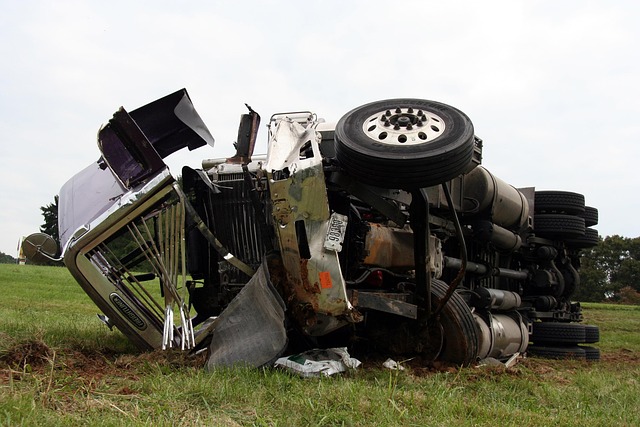Looking to register your car in California? Navigating the process can seem daunting, but we’ve got you covered. This guide breaks down the steps, from understanding key requirements for car registration in the Golden State to completing the DMV’s crucial VIN (Vehicle Identification Number) check. We’ll walk you through gathering necessary documents and both online and in-person registration options. Plus, learn about registration fees and securing your official certificate.
- Understand Requirements for Car Registration in California
- Gather Necessary Documents for VIN Verification
- Perform DMV Vehicle Identification Number (VIN) Check
- Complete Online or In-Person Registration Process
- Pay Registration Fees and Receive Your Registration Certificate
Understand Requirements for Car Registration in California

Before registering your car in California, it’s crucial to understand the specific requirements set by the Department of Motor Vehicles (DMV). The process involves several key steps, including a thorough vehicle inspection and verification of your car’s unique Vehicle Identification Number (VIN). In California, the DMV conducts a VIN verification to ensure that your vehicle matches the records on file and is safe for road use. This step is often facilitated by a mobile vin verifier or a similar service that provides convenient and accurate VIN inspection.
Additionally, you’ll need to gather essential documents such as proof of ownership, insurance, and identification. A valid driver’s license or state-issued ID card is typically required. The DMV offers both online and in-person registration options. Online registration streamlines the process, allowing you to submit all necessary documentation electronically. In-person registration involves visiting a local DMV office with your documents for manual processing. Understanding these requirements beforehand ensures a smoother registration experience.
Gather Necessary Documents for VIN Verification

Before heading to the California DMV for vehicle registration, ensure you have all the required documents for a smooth DMV VIN verification process. This includes your vehicle’s registration from the previous state, proof of insurance, and a valid driver’s license or identification card. Additionally, gather important papers related to the purchase of your car, such as the bill of sale or odometer reading records.
For convenience, many individuals opt for a mobile vin inspection or mobile vin verification service, which allows them to complete this step from the comfort of their homes. These services can help verify your vehicle’s history and identify any potential issues, ensuring you have all the necessary information to register your car with the California DMV efficiently.
Perform DMV Vehicle Identification Number (VIN) Check

Before registering your car in California, it’s crucial to perform a DMV Vehicle Identification Number (VIN) check. This step is essential for ensuring that the vehicle you’re looking to register is legitimate and has not been reported stolen or has any outstanding issues. You can complete this process online through the California DMV website or by visiting a local DMV office.
A vin inspection involves verifying the VIN data provided by the manufacturer with the information on record at the DMV. This simple yet vital step helps in maintaining the integrity of California’s vehicle registration system and safeguards against fraud. Even if you’re considering purchasing a used car, a mobile vin verifier can facilitate this process quickly and conveniently. Alternatively, many mobile apps now offer services for performing a mobile vin verification, making it easier than ever to check a vehicle’s history before registering it in your name.
Complete Online or In-Person Registration Process

In California, registering a car involves either completing an online or in-person process, both designed to ensure vehicle safety and identity. The first step for any owner is to gather all necessary documents, including proof of insurance, proof of ownership, and a valid driver’s license. For out-of-state transfers, an additional form for change of ownership may be required. Once prepared, individuals have two options: register online through the California Department of Motor Vehicles (DMV) website or visit a local DMV office.
Online registration simplifies the process with a step-by-step guide and real-time validation for documents like the Vehicle Identification Number (VIN) verification. This VIN inspection ensures the vehicle’s identity and history, crucial for safety and security. Alternatively, in-person registration involves queuing at a DMV office, where staff assist with paperwork and conduct a mobile vin inspection to cross-reference vehicle details. Regardless of the method chosen, the goal remains the same: to accurately register the car while adhering to California’s vehicle registration requirements.
Pay Registration Fees and Receive Your Registration Certificate

After completing the registration process and providing all necessary documentation, it’s time to pay the registration fees. These fees vary based on vehicle type and age, so make sure to check the current rates on the California DMV website. You can typically pay online, over the phone, or in person at a DMV office. Upon successful payment, you’ll receive your Registration Certificate, which is a crucial document that verifies your vehicle’s ownership and legal status.
The process involves a DMV vin verification, where they cross-check your vehicle identification number (VIN) to ensure it matches the details on file. With modern technology, this can even be done through a mobile vin inspection or using a mobile vin verifier for added convenience. Always keep your registration certificate secure and up-to-date to avoid any future issues when renewing your car’s registration.
Registering a car in California is a straightforward process that involves understanding the requirements, gathering essential documents, and completing the registration process either online or in-person. The key step is the DMV vehicle identification number (VIN) check, which ensures the vehicle’s authenticity. By following these steps and adhering to the necessary procedures, you can smoothly navigate the car registration process, ensuring your vehicle is legally recognized and road-ready in the Golden State.
